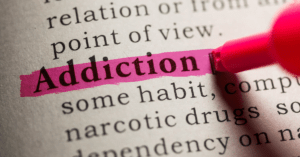To come out from all the addiction the person have to get patient and join rehab. This includes their ability to socialize, their physical and mental health, and the consequences at work, at home, at school, or with the law. There are many types of therapy to effectively treat addiction.
Contents
Causes and risk factors for addiction

There are a variety of causes and risk factors that can contribute to the development of substance use disorders. This can include:
- Genetics, such as the family history of substance abuse.
- Starting substance use at an early age.
- Exposure to heavy advertising for substances (eg, alcohol).
- Current mental health diagnoses.
- Poor parental supervision.
- A large number of family conflicts.
- History of abuse or neglect.
- Family conflict or violence.
Through therapy, counseling, rehabilitation, and other treatment modalities, the underlying motivations for developing addiction can be overcome and coping mechanisms and healing can begin. Because addiction affects everyone differently, the recovery process from addiction can be different for everyone. Fortunately, there are many different types of rehabilitation and specialized treatment programs to choose from to meet each person’s unique needs.
Type and level of rehabilitation treatment
Depending on the severity of your addiction, you or your loved one may need one level of treatment or several levels of treatment to achieve long-term recovery. Below are the types of rehabilitation in which therapy programs are used:
Detoxification: These programs can last from several days to several weeks. A medical-directed program helps stabilize patient and then help them for having dealt with drug or withdrawal symptoms.
Inpatient Rehab: Inpatient rehabilitation programs are hands-on solutions where patients receive supervised care and a structured treatment plan to help them overcome their addictions. People can get recover from all distractions with malibu rehab. This program can last from a few weeks to several months and may be followed by outpatient rehabilitation. Depending on the program, patients may receive 24-hour care from licensed professionals.
Outpatient Rehabilitation and Intensive Outpatient Programs: Outpatient programs allow users to participate in therapy and receive treatment at their leisure since patients do not have to be onsite or live in the facility. Treatment may take place at a drug treatment center, public health clinic, a clinic affiliated with a hospital, or another facility where regular appointments are held. Some outpatient programs may even offer evening and weekend programs, making them preferable for personal, family, and work commitments that may prevent them from attending inpatient rehabilitation.
List of drug addiction treatment programs
Addiction treatment to reduce substance abuse usually consists of a combination of group and individual therapy sessions that focus on teaching those in recovery the skills needed to become and stay sober and how to deal with different situations that can be mastered without turning to drugs or alcohol. Cognitive behavioral therapy is perhaps the most commonly used form of addiction treatment, often used during substance rehabilitation. Common behavioral approaches have been transformed into effective techniques.
Cognitive Behavioral Therapy (CBT): CBT encourages clients to ask questions and explore recurring thoughts to eliminate negative and unhealthy thoughts. CBT can be used to treat many types of substance use problems. People treated with CBT techniques learn to recognize and change their maladaptive behavior. CBT can help people with coping skills, recognize risky situations and what to do about them, and relapse prevention. Skills acquired through CBT continue to be useful long after the initial therapy and can also be used to treat co-occurring mental or physical disorders.
Emergency management (CM): CM can also be effective in treating many types of substance use disorders—for example, alcohol, opioids, marijuana, and stimulants—and is used to promote or enhance sobriety. This drug addiction treatment method provides material rewards as motivation for desired behavior, such as B.
Maintaining sobriety. The main benefit of CM is that it can reduce two of the biggest problems associated with treatment: dropout and relapse.
Motivational Interview (MI): MI is a drug addiction treatment technique designed to resolve ambivalence in recovering individuals so that they can embrace their treatment efforts to best change their problem substance use behavior. The goal is to strengthen the client’s motivation and commitment to change in a way that is consistent with the client’s values.
Conclusion
In conclusion, the best form of therapy for addiction depends on the individual. Different types of therapy can be beneficial to different people in varying ways. Cognitive behavioral therapy, motivational interviewing, and family therapy are all examples of therapies that have been proven to help people with their addictions. Ultimately, it is important for individuals to explore their options and choose the form of therapy that best fits their needs. With the right treatment plan in place, individuals can work toward successful recovery from addiction. You can also take our online de-addiction program.


